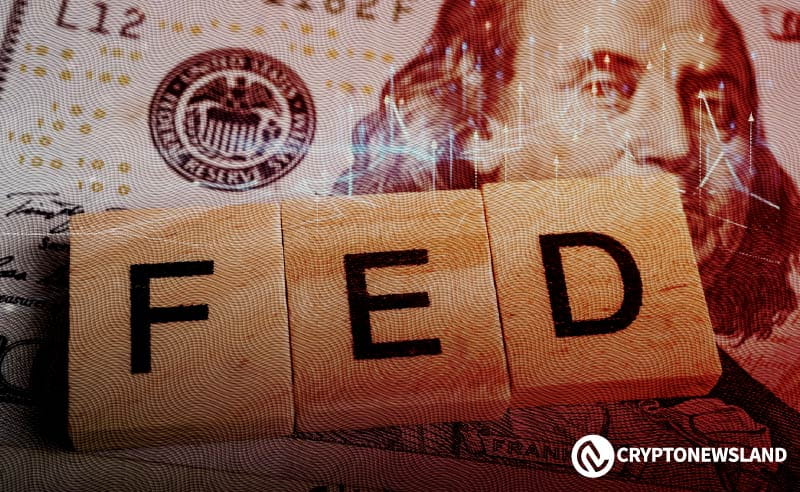
The Federal Reserve has dropped reputational risk from bank examinations related to crypto and tech firms.
Supervisors will now assess financial risks only, ensuring consistent standards across all regulated banks.
Over 30 firms were denied banking access during Operation Chokepoint 2.0, prompting industry complaints.
The U.S. Federal Reserve has directed its supervisors to remove the use of “reputational risk” when overseeing banks’ relationships with crypto firms, as noted by TFTC. This move comes after widespread criticism from the digital asset industry, which claimed that banks were pressured to sever ties with technology and cryptocurrency companies due to perceived reputational concerns.
https://twitter.com/TFTC21/status/1937221241108332706 Supervisory Materials To Be Revised
The Federal Reserve Board announced on Monday that it has begun updating its supervisory materials. It will remove references to reputational risk and instead focus on financial risk during bank examinations. This change affects all banks under the Federal Reserve’s jurisdiction.
The board said it will also work with other federal banking regulators to create consistency across all supervisory frameworks. Bank examiners will receive guidance and training to apply the revised standards across institutions.
According to the Fed, the adjustment will ensure all banks are evaluated using financial criteria rather than public perception. However, the board emphasized that all banks must continue to comply with current risk management rules and regulations.
Background of Operation Chokepoint 2.0
Over 30 crypto and tech firms in the United States lost access to banking services under scrutiny from regulators. The events, commonly referred to as Operation Chokepoint 2.0, left several crypto companies unable to maintain basic financial services.
Many of the influenced firms operated in areas regulators viewed as high-risk. As a result, banks often terminated partnerships, citing fears of negative media coverage or regulatory blowback. These actions sparked industry claims that crypto businesses were unfairly de-banked based on image, not conduct.
The decision to remove reputational risk as a formal part of banking oversight now reverses a long-standing supervisory practice.
Fed Clarifies Risk Management Expectations
Despite the change, the FED has made clear that it still expects banks to uphold strong risk controls. While reputational risk will no longer appear in exam guidance, banks must still monitor and manage operational, credit, and legal risks under existing frameworks.
The board explained that reputational risk refers to the threat of customer loss, litigation, or income decline caused by bad publicity. This could result from actions by the bank or its clients, regardless of whether those reports are accurate.
Some experts have expressed concern that eliminating reputational considerations could limit banks' ability to flag non-financial concerns. They argue that reputational events, even without legal consequences, can still impact a bank’s financial standing. For now, the Federal Reserve will rely on measurable financial risk to guide banking supervision across all sectors, including crypto.
